Key takeaways:
- Local composting methods, such as pit composting and vermicomposting, enrich soil and strengthen community ties.
- Composting reduces landfill waste and methane emissions, fostering sustainable food systems and enhancing garden health.
- Drone technology aids agriculture by mapping farms, monitoring environmental changes, and improving waste management efforts.
- Implementing drone mapping in Zanzibar can advance local agriculture, resource management, and community infrastructure planning.
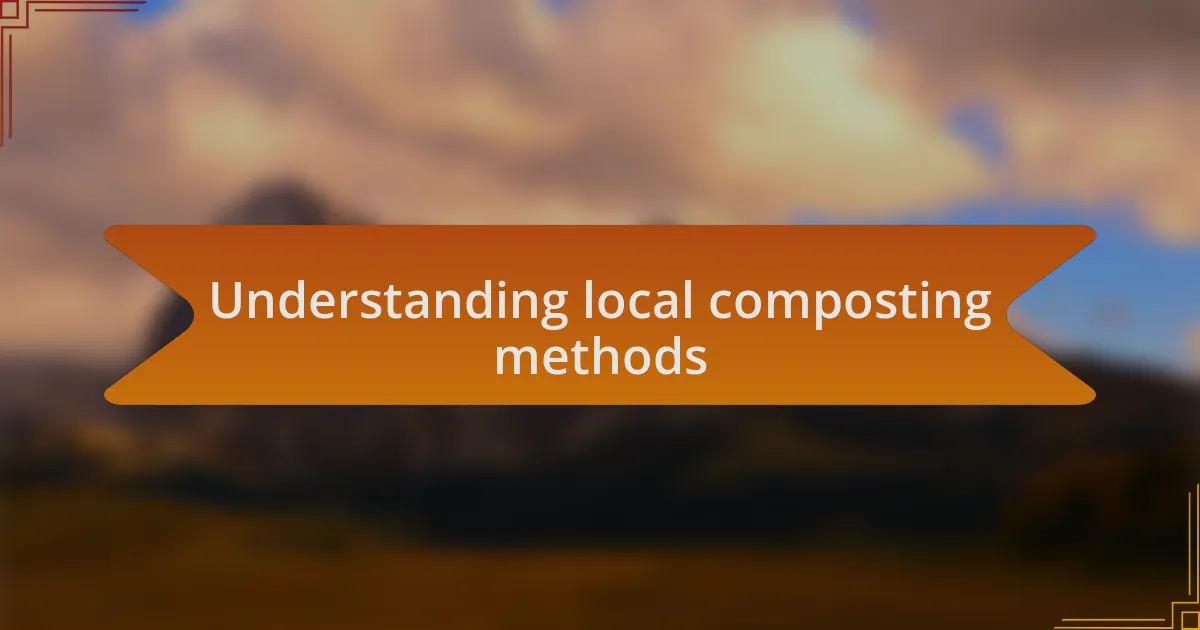
Understanding local composting methods
When I first delved into local composting methods, I realized how diverse and tailored they can be to the community. For instance, some households in Zanzibar use a simple pit composting technique, burying organic waste underground. Watching my neighbor set up her compost pit sparked my interest—seeing how something so naturally discarded could transform into rich soil was awe-inspiring.
There’s also the option of vermicomposting, which involves using worms to break down organic materials. I remember my initial hesitation about having worms in my home, but once I witnessed the speed at which they worked, I was sold! It’s incredible how these little creatures can turn kitchen scraps into nutrient-dense compost in no time. Have you considered how many benefits you could reap from adopting something similar?
Moreover, local methods often include crop residues and animal manures, promoting a circular economy within communities. I often think about how these practices not only enrich the soil but also strengthen community ties as neighbors share knowledge and resources. Isn’t it fascinating how composting serves not just the earth, but the social fabric of our neighborhoods?
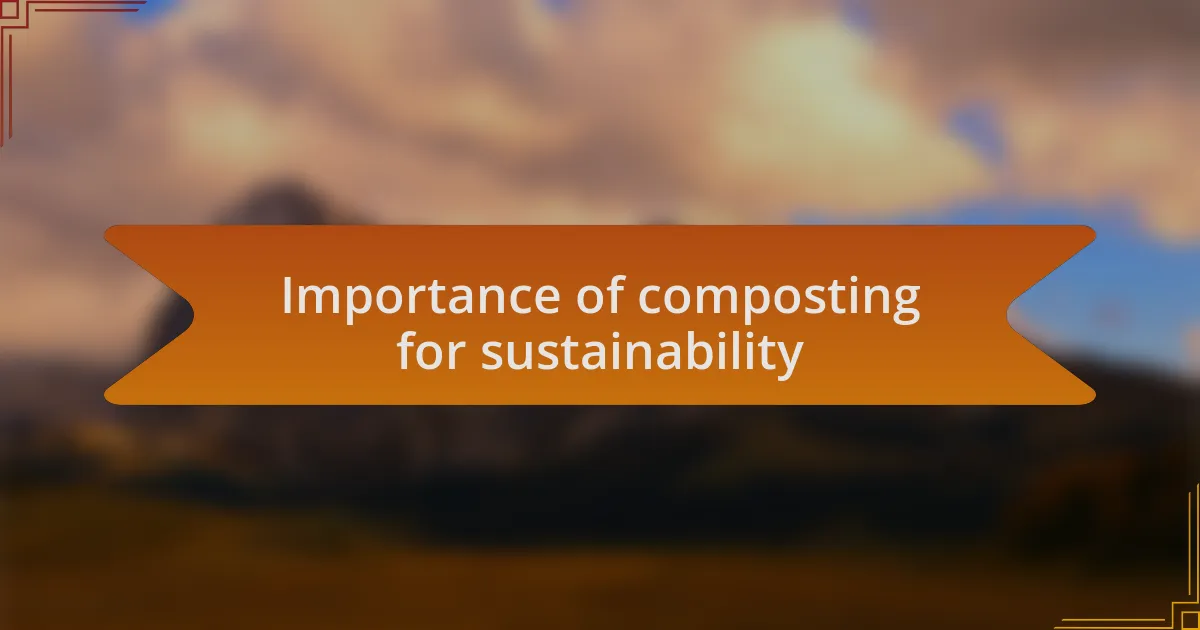
Importance of composting for sustainability
Composting plays a crucial role in sustainability by reducing organic waste in landfills, which, as I’ve seen firsthand, can have detrimental effects on our environment. I remember visiting a local landfill and feeling overwhelmed by the sheer volume of waste, much of it organic material that could have been composted. It made me realize how every composting effort, no matter how small, contributes to minimizing methane emissions—a potent greenhouse gas released from decomposing organic waste.
Creating compost enriches the soil with essential nutrients, effectively closing the loop in our food systems. I once experimented with a small compost bin in my backyard, and the difference it made in my garden was astounding. The vegetables I grew that season were not only healthier but also produced a sense of pride. Have you ever noticed how vibrant a garden can become when fed with natural compost? It’s as if the soil knows it’s being treated with care.
Furthermore, the social aspect of composting is something I cherish. Sharing composting tips and successful practices with friends made me appreciate our community’s commitment to sustainability even more. I recall a neighborhood workshop on composting; the excitement in the room was palpable. Isn’t it wonderful how composting not only nurtures our environment but also fosters relationships and builds a sense of collective responsibility towards a more sustainable future?
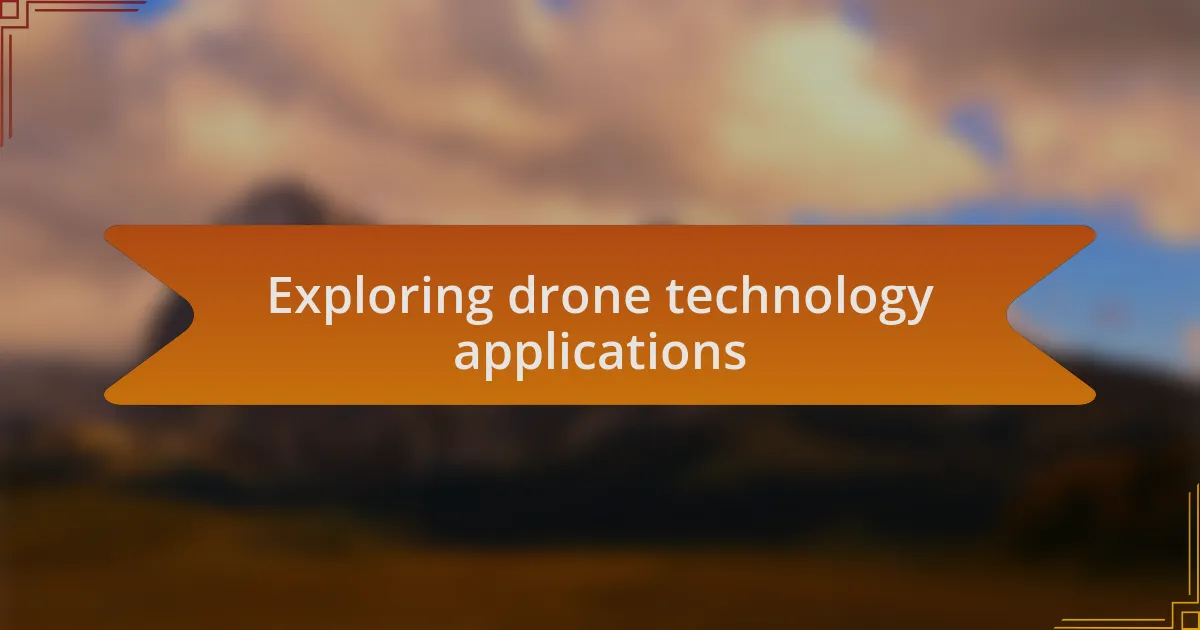
Exploring drone technology applications
Drone technology has taken the agricultural sector by storm, offering unique applications that enhance farming practices. I remember watching a demonstration where drones were used to map a large farm, capturing detailed images that helped identify areas needing more irrigation. It’s fascinating to think how this precision allows farmers to save resources and increases crop yields significantly.
Another remarkable application is in environmental monitoring. I participated in a project where drones were deployed to track deforestation rates in remote areas. With aerial views provided by the drones, we could see firsthand how quickly changes were occurring, making our conservation efforts more targeted and effective. Isn’t it incredible how technology can give us a bird’s-eye view of environmental issues, providing data that was once hard to gather?
Moreover, drones are being employed for waste management, including composting efforts. I was part of a community initiative where drones helped locate organic waste hotspots around our neighborhood. It was an eye-opener to see the data collected with such ease, allowing us to direct our composting campaigns to areas that needed them the most. Who would have thought that flying gadgets could play such a pivotal role in managing our waste effectively?
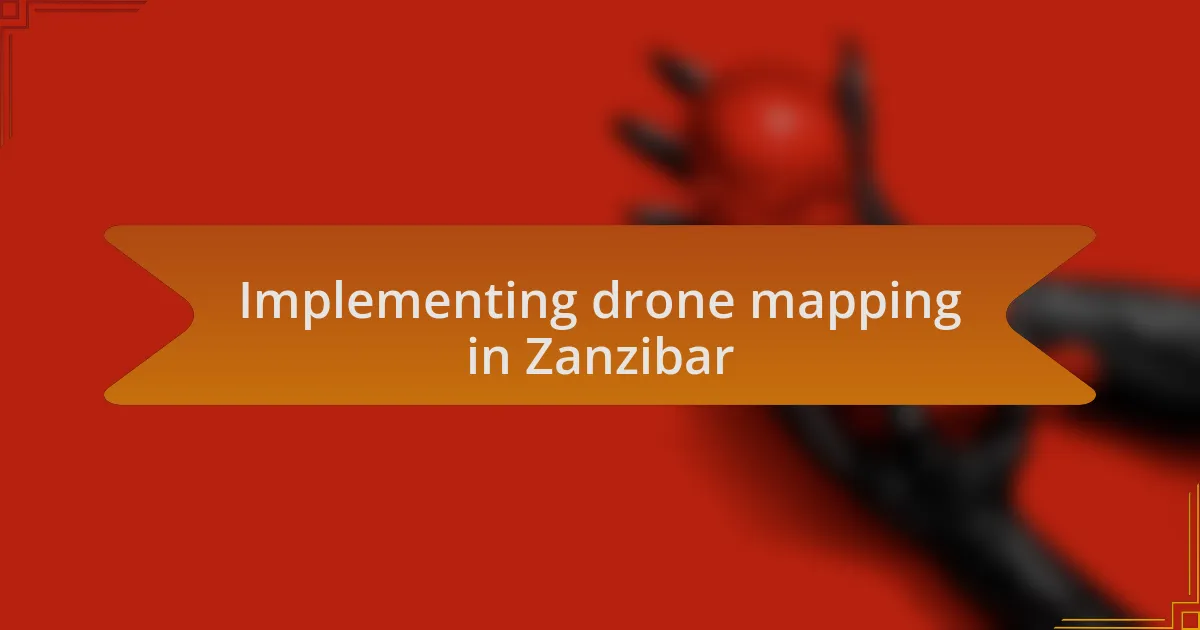
Implementing drone mapping in Zanzibar
Implementing drone mapping in Zanzibar opens up a world of possibilities for local agriculture and resource management. During my last visit, I witnessed how drones could efficiently map the diverse landscapes, revealing the crop distribution across regions. Doesn’t it make you wonder how much more effective our farming strategies could be with such detailed insights?
The use of drones here also extends to monitoring and planning infrastructure developments. I remember discussing with local officials how aerial maps could help identify optimal locations for schools and health facilities. Their eagerness to embrace this technology was palpable, indicating a shared vision for sustainable progress within Zanzibar’s communities.
One of the most striking aspects of using drone mapping is the sense of community it fosters. I engaged with farmers who delighted in seeing their fields from the air, gaining fresh perspectives on their land. Seeing their excitement sparked a realization: when technology meets tradition, there’s a powerful opportunity for growth and innovation. Isn’t it inspiring to think about the changes that lie ahead for Zanzibar with such tools at our disposal?
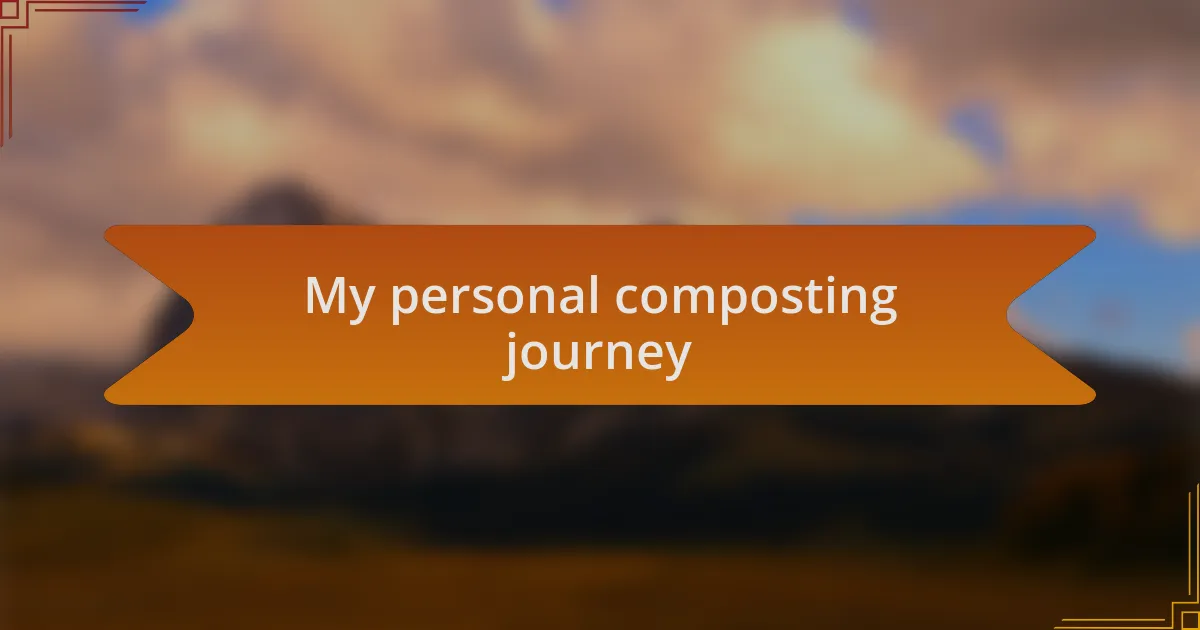
My personal composting journey
As I embarked on my composting journey, I quickly realized the impact it could have on both my garden and the environment. The first time I saw a pile of food scraps transform into rich, dark compost was nothing short of magical. Have you ever experienced the satisfaction of nurturing something from waste to nourishment? That moment sparked my passion for composting.
I remember the initial challenges I faced—balancing green and brown materials and keeping the pile moist. There were times when it felt overwhelming, especially when I saw the compost attracting unwanted pests. But slowly, I learned to listen to the compost; it started teaching me the rhythm of decomposition. This connection made me appreciate the entire process and its role in my local ecosystem.
With every batch of compost I produced, I noticed a change in my garden. The plants flourished, producing more vibrant blooms and bountiful yields. It felt like a cycle of giving back to the earth, and I couldn’t help but ask myself, “What if everyone tried composting?” The idea of thriving gardens all around me, nurtured by understanding and care, fills me with hope for a greener future.